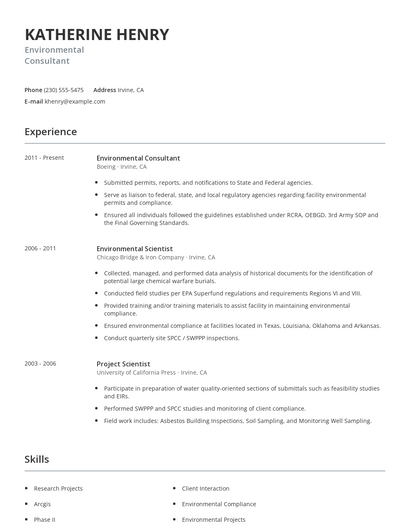
McKinsey and Company can offer a competitive salary and a great place to work if that's what you're looking. Learn more about average salary, bonus, and office locations. You'll also learn more about the culture of the company and how they reward their employees.
Average salary
McKinsey and Company pays an average of $402,000 per year. However, it is possible for it to vary considerably. The highest-paid employees get around $240,000 per the year while the lowest paid earn about $18,000. Salaries for Partners at the firm vary from $199,000 - over $1 Million. Additionally, compensation for partners varies depending on their performance and the amount of project commissions.
Associates earn up to $154,000 a year. They can also be called Project Leaders, and their salaries can climb as high as $220,000. Performance bonuses and profit-sharing options can increase associate salaries. Associate status can be achieved in three to six years.
Salary progression
McKinsey is very interested in the progression of employees' salaries. Employees can start at the bottom tier as junior associates and work their way up to the top. As their career progresses, they can become senior partners, which will earn them a base salary of around $5 million. They will receive bonuses equal to 90% of their performance bonus as they climb the ladder.

The salary progression of McKinsey consultants depends on the role that they play. As the company grows and you take on more challenging work, you will likely earn a higher salary. A consultant at entry level can expect to make between $108,000 and $116,000 annually, which is the average salary. An MBA or doctorate is an option to earn a higher income as a project manager.
Bonuses
When it comes to company bonuses, McKinsey isn't the worst of the bunch. The signing bonus it offers MBAs is nearly doubled since the previous year, to $30,000. Bain also contributes $7.500 to its plan's 401k, while BCG invests a portion of its profits into the 401k for each new graduate. In contrast, BCG doesn't disclose its bonus, but the firm has recently increased its MBA signing bonus to $30k to keep up with tech companies.
McKinsey has a bonus that is more generous than the bonuses of other consulting companies. For example, the salary of a consultant at Goldman Sachs is $50k higher than that of an associate at McKinsey & Company. The gap between consulting firms and banks has widened to more than $100k a year. McKinsey & Company gives a $10,000 bonus to graduates who relocate to the firm.
Offices
McKinsey offices and McKinsey company offices are located within the Innovation District of South Boston. These offices house 200+ consultants, and are well-known because of their progressive atmosphere. Boston is a city with a rich culture, and an environment that encourages innovation. However, housing costs are much higher than the national average. You have many options if moving to Boston is something you consider.
McKinsey and Company has offices throughout the world. Each city's office culture is unique. Each office offers different office culture and industry specialization, so it's important to find one that fits your preferences.

Levels
The company has a clear hierarchy, with levels ranging from Associate Consultant to Partner. McKinsey's traditional career path is to start as an Analyst, and then work your way to Partner. As you progress from entry-level to senior positions, you'll focus on gathering data, analyzing it, and delivering presentations. Associate Consultant positions will require you to have a graduate certificate, however, the firm has roles available for those with no degree.
Although Bain and McKinsey are similar in size, McKinsey has a more formal work culture. The company takes their work seriously and tends have longer working hours. They also do not give employees logo gifts, as this may seem unprofessional to their clients. While the salaries at both companies are similar, McKinsey boasts a greater alumni network and is more prestigious.
FAQ
How long does it usually take to become an expert consultant?
Your industry and background will determine the length of time it takes. People start work with a few weeks before they find employment.
However, many consultants spend years honing their skills prior to finding work.
How much do consultants make?
Some consultants make over $100k per year. However, most consultants only make $25-$50k. An average consultant salary is $39,000 This includes both salaried and hourly consultants.
Salary depends on the experience of the consultant, their location, industry, type and length of the contract (contractor or employee), as well as whether they have their own office or work remotely.
What is a consultant anyway?
Consultants are those who offer services to other people. It's not a job title. A consultant is a role that helps others achieve their goals. This is done by helping others understand their options and making the right decisions.
Consultants are experts at finding solutions to problems and challenges that arise when working on projects. They offer guidance and advice about how to implement such solutions.
Consultants should be able and willing to answer any questions regarding business, technology or finance, leadership, strategy, customer service, legal, management, leadership, management, law, management, law, procurement, legal, marketing, human resources, etc.
How do I choose a good consultant?
There are three main factors to consider:
-
Experience - How many years of experience is this consultant? Are you a beginner or an expert? Does her resume show that she has the necessary skills and knowledge?
-
Education - What did this person learn during school? Did he/she pursue any relevant courses once he/she graduated? Are we able to see evidence of his/her learning through the way he/she writes
-
Personality - How do we feel about this person? Would we like him/her to work with us?
-
The answers to these questions help determine if the consultant is right for our needs. If the answers to these questions are unclear, it might be worth a first interview to get more information about the candidate.
What tax do I have to pay on consulting income?
Yes, you will need to pay tax on your consultancy profits. The amount depends on how much you earn per year.
If you're self employed, you can deduct expenses beyond your salary.
But you won't be able to deduct interest payments on loans, vehicle depreciation, or the cost of equipment.
If you earn less than PS10,000 per year, 25% can be claimed back.
However, you might still have to pay tax if your earnings are higher than the threshold. This depends on whether you are an employee or contractor.
The PAYE tax for employees and the VAT tax for contractors is generally paid as you earn.
Statistics
- So, if you help your clients increase their sales by 33%, then use a word like “revolution” instead of “increase.” (consultingsuccess.com)
- 67% of consultants start their consulting businesses after quitting their jobs, while 33% start while they're still at their jobs. (consultingsuccess.com)
- WHY choose me: Why your ideal client should choose you (ex: 10 years of experience and 6-week program has helped over 20 clients boost their sales by an average of 33% in 6 months). (consultingsuccess.com)
- "From there, I told them my rates were going up 25%, this is the new hourly rate, and every single one of them said 'done, fine.' (nerdwallet.com)
- Over 50% of consultants get their first consulting client through a referral from their network. (consultingsuccess.com)
External Links
How To
What Does A Typical Day For A Consultant Look Like?
Your work type will determine the length of your day. But, in general, you will spend your time researching, planning and meeting new clients.
Clients will often meet with you to discuss their problems. These meetings can be conducted over the phone, by email, face-to-face, or online.
You may also be asked to prepare proposals, which are documents outlining your ideas and plans for clients. Before presenting these proposals to clients, you will usually need to discuss them with a colleague or mentor.
After all the planning and preparation you will have to put your efforts into creating some content. Writing articles, designing websites, editing photos or conducting interviews are just some of the options.
Based on the scope and complexity of the project you may need research to obtain relevant statistics. For example, you may need to find out how many customers you have and whether they are buying more than one product or service.
Once you have enough information, it is time to present your findings and conclusions to clients. You can present your findings verbally or in writing.
Finally, you must follow up with clients after the initial consultation. You could phone them occasionally to check on things or send an email asking them to confirm that you have received their proposal.
This is a long process that can take some time. However, it is crucial to stay focused and to maintain good relationships.